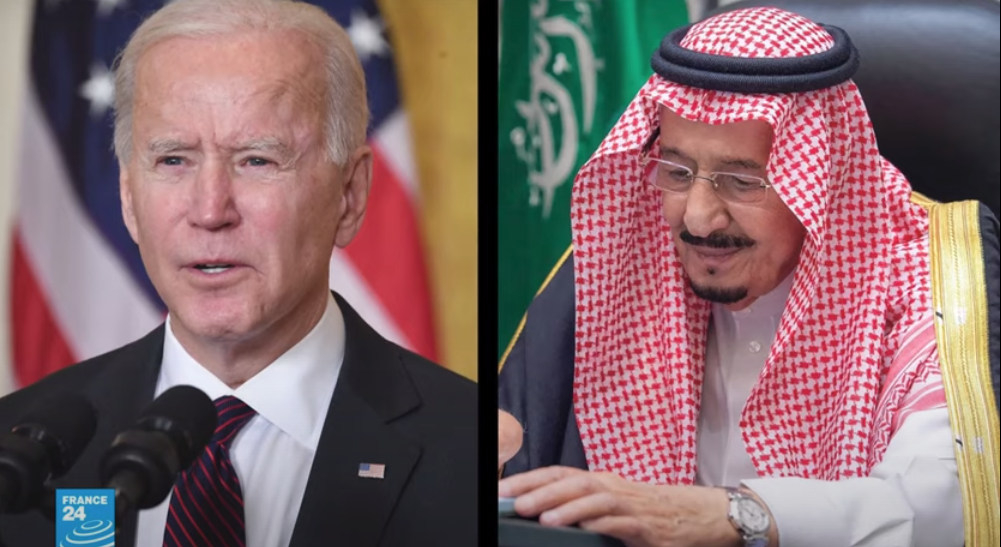The Saudis have conditioned their agreement on the establishment of a Palestinian state, adding a layer of complexity to the negotiations.
The resumption of these talks follows a pause initiated by Saudi Arabia after the October 7 attack by Hamas on settlements around Gaza and Israel’s subsequent ground invasion of the Gaza Strip.
Saudi Crown Prince Mohammed bin Salman had previously indicated progress in secret talks with the US and Israel, expressing optimism about reaching an agreement.
Recent discussions, notably between US Secretary of State Tony Blinken and Crown Prince Mohammed bin Salman, have reignited the possibility of a tripartite deal.
Blinken emphasized the necessity of presenting a clear path for the establishment of a Palestinian state to promote normalization between Israel and Saudi Arabia.
Despite Saudi Arabia’s expressed interest in normalizing relations, Ambassador Khaled Bin Bandar affirmed that any deal must lead to the establishment of a Palestinian state, underscoring Saudi Arabia’s commitment to the Palestinian cause.
Hamas sources suggest that the October 7 attack aimed to sabotage the normalization agreement between Israel and Saudi Arabia, with the alleged encouragement of Iran.
Prime Minister Netanyahu has reportedly maintained a secret channel with the White House through Minister Ron Dermer to renew contacts with Saudi Arabia regarding normalization.
While the US and Israel may view a normalization agreement as a means to end the Gaza conflict and prevent regional escalation, potential risks and challenges should not be overlooked.
President Biden sees the deal as a potential achievement for his administration, while Netanyahu could benefit politically after the perceived failure of the October 7 events.
However, the normalization agreement poses security risks for Israel:
- Political Implications: Accepting the establishment of a Palestinian state may lead to government dissolution, seen as a victory for Hamas.
- Embracing the two-state solution, freezing settlements, and committing to an independent Palestinian state could jeopardize Israel’s strategic depth in Judea and Samaria.
- Military Concerns: The supply of advanced weapons, including F-35 aircraft, from the US to Saudi Arabia could erode Israel’s qualitative advantage over Arab countries.
- Nuclear Threat: The potential supply of a nuclear reactor to Saudi Arabia for “peaceful purposes” raises concerns about future uranium enrichment for military purposes.
This could trigger an arms race in the Middle East, with countries like Egypt and Turkey seeking nuclear capabilities.
In light of these risks, caution is advised before rushing into a normalization agreement, especially while Israel is engaged in conflicts with Hamas and Hezbollah.
Waiting for the resolution of ongoing conflicts may allow Israel to negotiate more favorable terms with fewer security implications.




